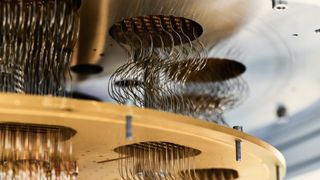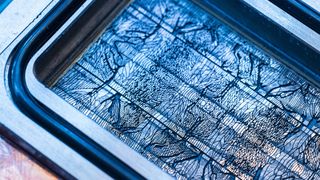Computing news, features and articles
Explore Computing
Latest about Computing

Google's breakthrough 'Quantum Echoes' algorithm pushes us closer to useful quantum computing — running 13,000 times faster than on a supercomputer
By Keumars Afifi-Sabet published
The new quantum computing algorithm, called "Quantum Echoes," is the first that can be independently verified by running it on another quantum computer.

Quantum computing 'lie detector' finally proves these machines tap into Einstein's spooky action at a distance rather than just faking it
By Tristan Greene published
Researchers developed an experimental method for confirming quantum activity in a quantum computing system.

New smart ring is a novel way to control your computer — it has the humble mouse firmly in its sights
By Owen Hughes published
The picoRing device ditches Bluetooth for a novel magnetic relay system linked to a wristband, slashing its power consumption to mere microwatts.

'This moves the timeline forward significantly': Quantum computing breakthrough could slash pesky errors by up to 100 times
By Owen Hughes published
Researchers used a new technique called algorithmic fault tolerance (AFT) to cut the time and computational cost of quantum error correction by up to 100 times in simulations of neutral-atom architecture.

Quantum record smashed as scientists build mammoth 6,000-qubit system — and it works at room temperature
By Tristan Greene published
A new system, made by splitting a laser beam into 12,000 tweezers and trapping 6,100 neutral atom qubits, hit new heights for coherence times.

Best laptops for students 2025
By Keumars Afifi-Sabet last updated
Buying Guide Ideal for work and entertainment, these are the best laptops for students in 2025.

Best laptops for coding and programming 2025: Our best picks for working on the move
By Mike Jennings last updated
Find one of the best laptops for coding and programming so you can work on the go with ultimate power in a portable package.

Science history: Invention of the transistor ushers in the computing era — Oct. 3, 1950
By Tia Ghose published
On Oct. 3, 1950, three Bell Labs scientists received a patent for a "three-electrode circuit element" that would usher in the transistor age and the era of modern computing.

Microsoft unveils new liquid-cooled computer chips — they could prevent AI data centers from massively overheating
By Owen Hughes published
Microsoft engineers have developed a microfluidics chip-cooling technique that removes heat more efficiently and could ratchet down heat generated by AI workloads.
Get the world’s most fascinating discoveries delivered straight to your inbox.
 Live Science Plus
Live Science Plus











